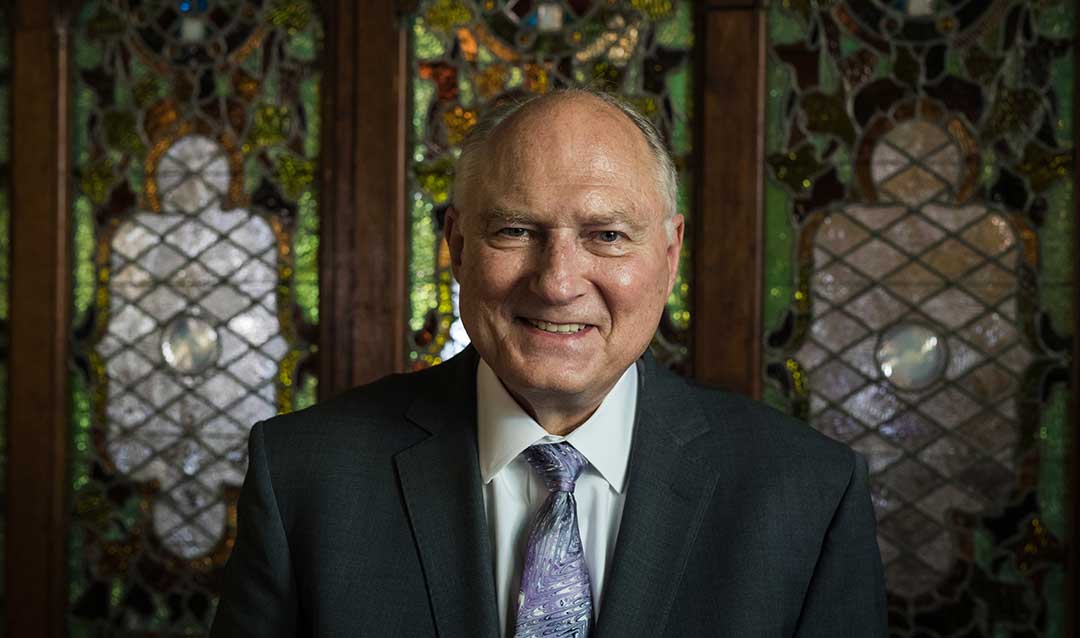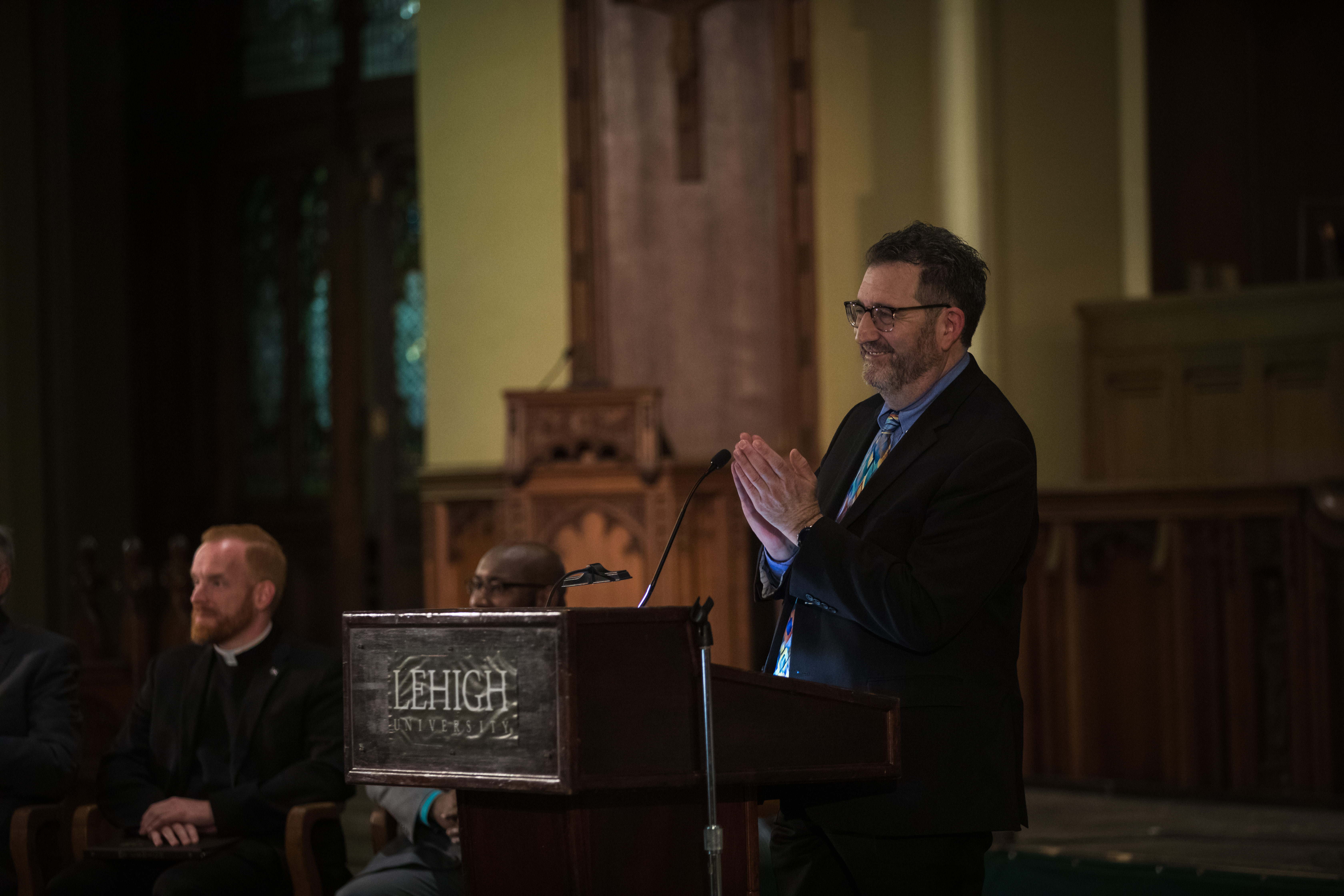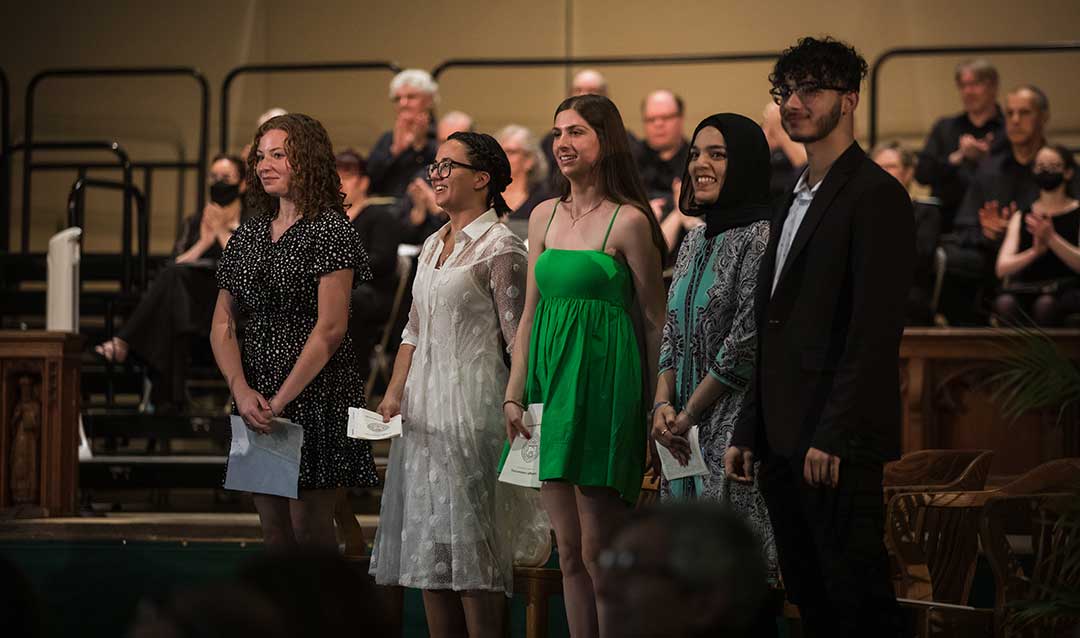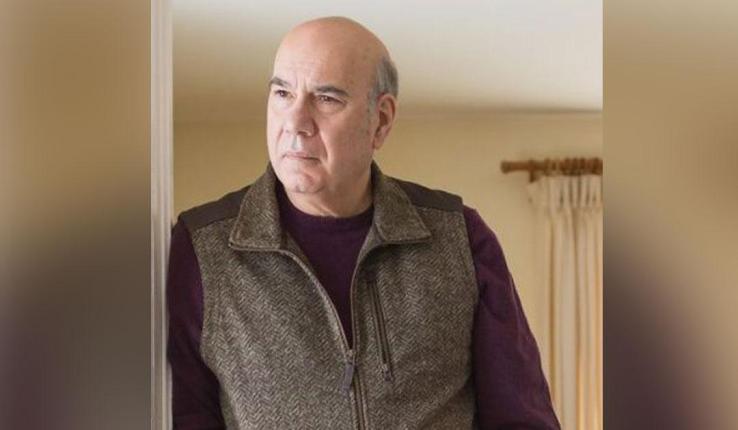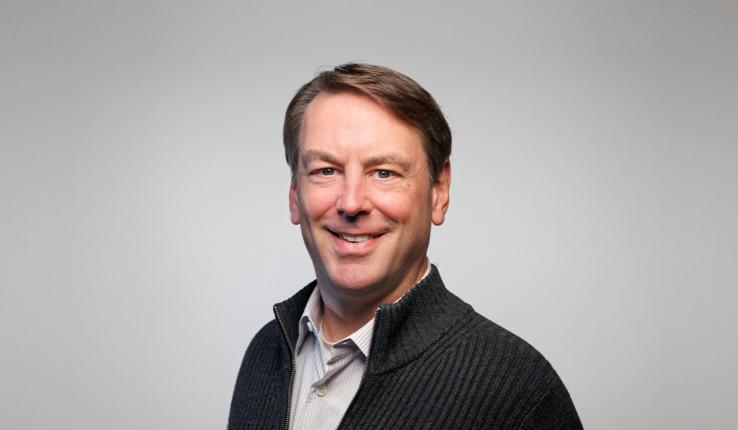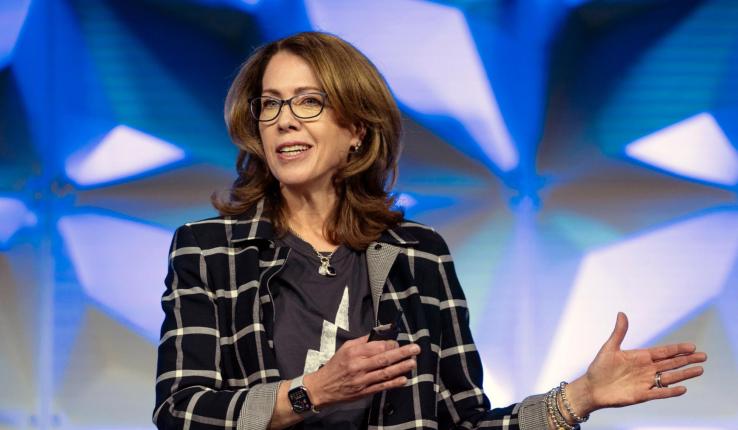Words from the Traditions
Baccalaureate precedes commencement and is more akin to a sermon, being reflective in tone and offering graduates a chance to evaluate what they’ve learned at Lehigh and what it means, Kasulis said.
Before Kasulis’ address, Rabbi Steven Nathan, endowed director of student life and associate chaplain, delivered the opening remarks, asking graduates and their parents to each stand for a moment of applause.
“You have now accomplished something significant in your educational careers, and we are here to recognize and celebrate this,” Nathan said. But, for all they have accomplished, graduates still have much to learn, he said, and Nathan encouraged them to take an active role not only in their chosen professions, but in their communities as well.
“We remind ourselves that if we are to be faithful to the university’s mission, and true to the spiritual demands of living, working and studying here, we must set ourselves to service in the world and attend to the needs of all our brothers and sisters,” Nathan said.
The first Baccalaureate service was held in 1432 at Oxford University, Nathan said. It was intended as a final exam where graduates had to deliver a sermon in Latin before the faculty.
Today, Baccalaureate provides an interfaith religious service that honors the spiritual traditions of the community. In addition to Kasuls’ address, graduates also heard from five classmates of different faiths who each shared something of meaning to them. The students were:
Aatika Rizwan ’22 (Islam), graduates with a computer engineering degree. Rizwan will return to Lehigh in the fall for the Master’s in Management program. Rizwan said the pandemic claimed nearly two years of her time at Lehigh. Through all the stress and anxiety, Rizwan said knowing she had a higher power to lean on carried her through four years and a pandemic. “Sometimes life doesn’t go as expected, but God guides us through. I praise God for bringing you and me here today to celebrate the 2022 Commencement.”
Emma Mirabelli ’22 (Roman Catholicism), graduates with a degree in computer engineering. Mirabelli will enter the Master of Engineering in Computer Engineering Program next fall at Lehigh. She said Catholic Campus Ministry and attending Sunday services at Packer Memorial Church were among her fondest memories of Lehigh. “I developed lasting friendships and became part of a community where anyone was always welcomed with open arms,” Mirabelli said. She shared the “Prayer of St. Frances” to serve as a reminder to treat others with kindness, spread peace, humble oneself, and to live as Jesus.
Jenna Simon ’22 (Judaism), graduates with a computer science major with a minor in data science. Next year, she will start working as a data engineer with Meta in the San Francisco Bay area. In Judaism, there is a blessing for everything, Simon said, yet she struggled to pin down which part of graduation she was most thankful for. “So many accomplishments went into getting us to where we are today, and upon reflection, my biggest feeling was simply a sense of pride and gratitude for having made it to this special weekend.” Simon then shared a special Jewish blessing, the Shehecheyanu.
Malik Wahidy ’22 (Islam), graduates with a dual major in finance and economics. Wahidy has accepted a position in Washington, D.C., as a federal consultant at KPMG. “What stands out when we remember our time here?” Wahidy asked. With a sense of humor he recalled living in a dorm and trying not to fall asleep during Zoom classes. “These are the things that make each of our college years unique,” he said. He urged fellow graduates not to take any opportunity for granted and to get outside of their comfort zone. Wahidy closed with a prayer from the Hadith.
Melina Mitsogiorgakis ’22 (Orthodox Christianity), is a graduate of the IDEAS (Integrated Degree in Engineering, Arts and Sciences) Honors Program. Mitsogiorgakis will be employed as the incoming applications engineer at Lutron Electronics as part of that company’s Construction Design Development Program. “It feels surreal to me. I often tell my friends you can’t plan, you can only prepare,” she said of reaching the end of her four years at Lehigh. Mitsogiorgakis said those four years were well beyond her expectations. “Especially in these past few months, I have been overwhelmed by the presence of God, and for this and other phases in my life, I cannot be thankful enough.”


